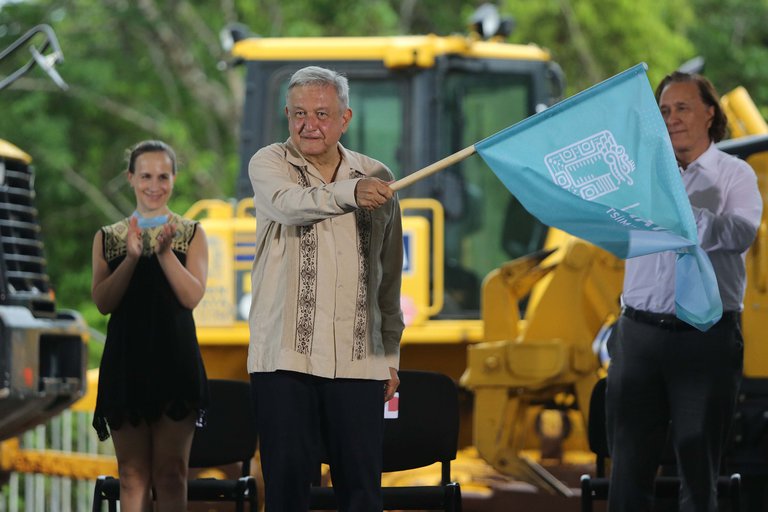
Is the Mayan Train worth the environmental cost?
What started as one of AMLO’s biggest sustainable tourism projects could become one of the most damaging for the ecosystem.
With the COVID-19 situation raging, and the public discourse arguing whether the death statistics are accurate or not, Mexican president Andrés Manuel López Obrador (AMLO) has used the unexpected situation to accelerate the process of controversial constructions developed by his government, such as the Mayan Train.
The Mayan Train, along with Santa Lucia’s new airport, and Dos Bocas refinery are some of the most important projects that will be constructed during AMLO’s presidential term.
The railway project was introduced by the president during his election campaign with the idea to promote tourism and boost the economy of the Mayan Peninsula, and making easier connections between the most important cities of the south region: Chiapas, Tabasco, Campeche, and Yucatán.
The project, with a planned route of more than 630 km, was granted as one of the sustainable and technological improvements presented by the new government.
In fact, during a press conference held back in 2018, a few months after the president was elected, he stated that “no trees will be removed for the construction of the project,” in an attempt to calm concerns regarding the potential environmental damage a construction of the railway’s magnitude could cause.
However, in a report presented this weekend by the National Fund for the Promotion of Tourism (Fonatur) it declared that more than 10,000 trees will be cut and around 2,500 hectares of protected natural areas will also suffer environmental damage.
Of the total area, 24% of it is currently part of the Mayan jungle, and 12% of agricultural land that still belongs to private property. According to the statistics presented by Milenio, “the remaining 64% of the construction is part of existing communication channels.”
RELATED CONTENT
The mission of the railway project was to construct a circuit of almost 635 km that could improve the connections between some of the most touristic regions among the Mayan peninsula, such as Chiapas, Campeche, Tabasco, and Yucatán.
However, after the publication of the environmental impact assessment (MIA), as well as the train being powered by diesel oil, one of the most damaging fossil fuels for the environment, it is not a surprise that the sustainability of the project is being questioned.
According to El Universal, “the project is being continued without considering the environmental impacts it may cause.”
Yucatán is the second most important jaguar region in the world and the environmental impact will also harm the region’s flora, including five endangered species.
In case the train proposal is completed, what began as one of the biggest sustainable tourism projects by the current president, will become the most damaging investment for the ecosystem.
Also taking into account the global pandemic that has impacted the country, in which the number of victims continues increasing every single day, the construction of the Mayan Train may not be the best decision right now.










LEAVE A COMMENT: